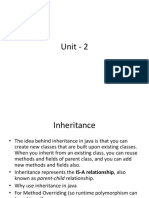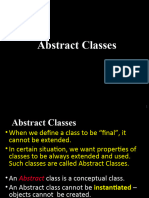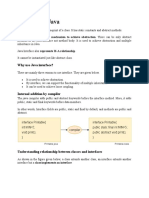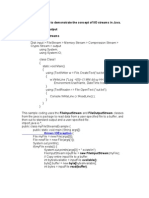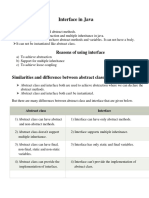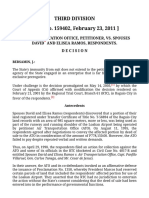0% found this document useful (0 votes)
18 views15 pagesInterface
An interface in Java is a collection of abstract methods and static constants, serving as a blueprint for classes to achieve abstraction and multiple inheritance. Interfaces cannot be instantiated and must be implemented by classes, which must provide definitions for the abstract methods. There are different types of interfaces, including functional interfaces with a single abstract method and marker interfaces that do not contain any methods or fields.
Uploaded by
pyvbvaraprasadCopyright
© © All Rights Reserved
We take content rights seriously. If you suspect this is your content, claim it here.
Available Formats
Download as PDF, TXT or read online on Scribd
0% found this document useful (0 votes)
18 views15 pagesInterface
An interface in Java is a collection of abstract methods and static constants, serving as a blueprint for classes to achieve abstraction and multiple inheritance. Interfaces cannot be instantiated and must be implemented by classes, which must provide definitions for the abstract methods. There are different types of interfaces, including functional interfaces with a single abstract method and marker interfaces that do not contain any methods or fields.
Uploaded by
pyvbvaraprasadCopyright
© © All Rights Reserved
We take content rights seriously. If you suspect this is your content, claim it here.
Available Formats
Download as PDF, TXT or read online on Scribd
/ 15







